As hard as you may try, you will probably not be able to find a saint who more perfectly epitomizes the Middle Ages than Thomas Aquinas (1225–1274):
- Born into a noble family related to the Catholic kings and emperors of Europe;
- Destined to be the abbot of a Benedictine monastery but chose a life of poverty in a new religious order (the Dominicans) instead;
- Taught at the most prestigious universities in Europe;
- And wrote some thirty volumes addressing every conceivable aspect of the Catholic faith.
You might say that Thomas Aquinas’s towering mind was a kind of intellectual Gothic cathedral: soaring to the heights of heaven, imbued with prayer, perfectly in order, and filled with brilliant and colorful light.
Humble Greatness
Despite his genius intellect – the kind that comes around once in a millennium – St. Thomas was also profoundly humble: two things that don’t often go 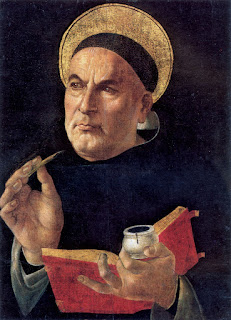 together. My favorite Thomas story involves this virtue.
together. My favorite Thomas story involves this virtue.
One day at the monastery where Thomas was staying, the superior of the community instructed a simple lay brother to get food from the market. But since they needed a large supply of food, he told the brother to take the first person he came across to the market with him.
Turning the corner on his way out the door, the brother spotted Thomas Aquinas who happened to be walking through the cloister at that very moment.
“You there! Come with me,” said the brother, unaware of whom he was addressing. “Father Superior sent me to do the shopping and told me to take the first friar I met on the way. Let’s go.”
Without the slightest hesitation, Thomas accompanied the impetuous little man, and the two accomplished their task in short order.
When the lay brother reported back to his superior about the outing, the Prior asked him who he took to the market with him. The brother said,
“I never got his name, but he was big and quiet. Didn’t talk much. Probably not too bright.”
Horrified, the Prior immediately knew who the big and “not too bright” man was. He said to the brother in disbelief:
“You just took the Church’s greatest living theologian to buy vegetables!”
Oops.
An incident like that says everything about the humble greatness of the man who debated with world-class intellectuals yet never lost the common touch. The point is that St. Thomas didn’t think he was above a task like that. Even more importantly, he considered it a question of religious obedience – which is where the real humility comes in. He put the directive of his religious superior above his own preference: if his leader ordered it, Thomas had nothing else to do that afternoon.
This attitude of heart is not surprising. Thomas was just emulating His Master. In a commentary on Paul’s Letter to the Philippians, the great theologian once wrote:
To restore man, who had been laid low by sin, to the heights of divine glory, the Word of the Eternal Father, though containing all things within His immensity, willed to become small. This He did, not by putting aside His greatness, but by taking to Himself our littleness.
Christ’s Humility in the Eucharist
Perhaps this is why St. Thomas wrote so many beautiful hymns about the Eucharist at the request of Pope Urban IV in 1264. The Holy Father wanted to establish a solemn feast day for the Eucharist Itself in order to fix more deeply in the hearts of the faithful a profound love for our Blessed Lord in the Most Holy Sacrament of the Altar.
If the Pope ordered it, then Thomas had nothing else to do. (Even though he probably had everything to do in his busy life as the most sought-after intellectual of his day.)
St. Thomas then went on to write the series of sublime mystical poems we now know as the prayers and hymns for the Mass of Corpus Christi, a feast that was established just ten years before Thomas’ death at the age of 50.
In his seven-line poem, Panis Angelicus, Thomas focused on the humility of the God-Man who emptied Himself of divinity in order to become bread for our souls!
A Wondrous Angelic Hymn
Even those who are familiar with the gorgeous modern rendition of Panis Angelicus may not know that it was composed by St. Thomas 800 years ago. Fewer still know that it was part of a larger poem about the Eucharist which Thomas created for Corpus Christi.
Its best-known musical version is by French composer César Franck who wrote it in 1872 for voice, oboe, harp, and organ. It is exquisite, and our videos below feature this famously beautiful rendition.
It’s important to clarify that Franck’s version is only one of many. There are no fewer than two dozen other versions of the hymn set to music in the last several centuries, the earliest of which was composed by Palestrina in the late 1500s!
Before You Listen
Here are several things to know about the Panis Angelicus before you listen to the music videos below:
- The song is not a stand-alone poem set to music, but is actually one of seven stanzas in Thomas’ longer poem called Sacris Solemniis;
- The seven stanzas of the hymn each have seven verses for a total of forty-nine verses, a perfect 7 x 7 configuration created by St. Thomas; seven is of course God’s perfect number in scripture;
- The lines in this hymn are not a complex, interlocking pattern of rhymes like a modern English sonnet, for example, but a simple feast of rhyming sounds;
- Like any poem, the endings of the words and phrases in Latin make possible many interesting combinations of sounds (–a, -is, -it, -um, -us, etc.);
- You don’t have to know Latin to see that the 2nd, 4th, and 6th lines of each stanza rhyme (I have put them in bold below to emphasize St. Thomas’ meter);
- Note also that the English translation does a very good job of keeping this 2/4/6 rhyming scheme in each stanza;
- I’ve highlighted in red the verse we know today as the Panis Angelicus;
- Note, especially, the last line of the stanza which consists of the three Latin adjectives that Thomas gives to our Lord: pauper, servus et humilis (poor and humble servant).
The most important insight into the poem, however, is about the poet. Since he was a theologian, St. Thomas’ hymn is not just a pretty piece of Latin poetry. Its words and sentiments are an expression of the true teaching of the Church about the Eucharist, not an attempt to entertain or play on the emotions.
At the same time, his sublime poetry is rhythmic and beautiful, capable of reaching the deepest recesses of heart and soul. This combination of beauty and truth epitomizes the greatest expressions of art.
- When truth is separated from beauty, it becomes a boring expression of dry facts or assertions.
- When beauty is separated from truth, it loses something of its essential attractiveness and exists only to stimulate the senses.
St. Thomas knew this, though. He was not only a humble guy; he was also pretty smart!
The Performances
Among the many exquisite presentations of Franck’s Panis Angelicus, who could deny the supremacy of Luciano Pavarotti’s performance?
Below his video I’ve added a link to a singular event in the cathedral of Modena, Italy in 1978 when Pavarotti sang a duet of the Panis Angelicus with his father in the balcony at the back of the church. It’s truly heartwarming!
Last but not least is the bracing performance by the Latvian mezzo-soprano, Elīna Garanča, whose luscious voice simply overwhelms the listener.
Luciano Pavarotti (3:41)
Elīna Garanča (4:54)
Lyrics: Latin and English*
Sacris solemniis
iuncta sint gaudia,
et ex praecordiis
sonent praeconia;
recedant vetera,
nova sint omnia,
corda, voces, et opera.
Noctis recolitur
cena novissima,
qua Christus creditur
agnum et azyma
dedisse fratribus,
iuxta legitima
priscis indulta patribus.
Post agnum typicum,
expletis epulis,
Corpus Dominicum
datum discipulis,
sic totum omnibus,
quod totum singulis,
eius fatemur manibus.
Dedit fragilibus
corporis ferculum,
dedit et tristibus
sanguinis poculum,
dicens: Accipite
quod trado vasculum;
omnes ex eo bibite.
Sic sacrificium
istud instituit,
cuius officium
committi voluit
solis presbyteris,
quibus sic congruit,
ut sumant, et dent ceteris.
Panis angelicus
fit panis hominum;
dat panis caelicus
figuris terminum;
O res mirabilis:
manducat Dominum
pauper, servus et humilis.
Te, trina Deitas
unaque, poscimus:
sic nos tu visita,
sicut te colimus;
per tuas semitas
duc nos quo tendimus,
ad lucem quam inhabitas.
At this our solemn feast
let holy joys abound,
and from the inmost breast
let songs of praise resound;
let ancient rites depart,
and all be new around,
in every act, and voice, and heart.
Remember we that eve,
when, the Last Supper spread,
Christ, as we all believe,
the Lamb, with leavenless bread,
among His brethren shared,
and thus the Law obeyed,
of all unto their sire declared.
The typic Lamb consumed,
the legal Feast complete,
the Lord unto the Twelve
His Body gave to eat;
the whole to all, no less
the whole to each did mete
with His own hands, as we confess.
He gave them, weak and frail,
His Flesh, their Food to be;
on them, downcast and sad,
His Blood bestowed He:
and thus to them He spake,
“Receive this Cup from Me,
and all of you of this partake.”
So He this Sacrifice
to institute did will,
and charged His priests alone
that office to fulfill:
to them He did confide:
to whom it pertains still
to take, and the rest divide.
Thus Angels’ Bread is made
the Bread of man today:
the Living Bread from heaven
with figures dost away:
O miraculous gift indeed!
the poor and lowly may
upon their Lord and Master feed.
Thee, therefore, we implore,
O Godhead, One in Three,
so may Thou visit us
as we now worship Thee;
and lead us on Thy way,
That we at last may see
the light wherein Thou dwellest aye.

Soul Work
Like a nuclear power plant that silently generates electricity for an entire community, the Eucharist is the very lifeblood of the Body of Christ, giving life to all who partake of its goodness.
Every week we are obliged to go to Mass not only because we are keeping holy the Sabbath but also because the Church is that very nuclear power plant providing divine energy to our spiritual lives.
Even if we do not receive Communion at a particular Mass, we are there to participate spiritually in the Eucharistic sacrifice and benefit from the overflowing life of grace that the Church gives to the world.
St Padre Pio once said that “A thousand years of enjoying human glory is not worth even an hour spent sweetly communing with Jesus in the Blessed Sacrament.”
Try to make a visit to the Blessed Sacrament in a church or an Adoration Chapel this week, if at all possible, and fill your heart with the divine radiation of the Panis Angelicus.
————-
*(Hymn and translation public domain, Wikipedia.)
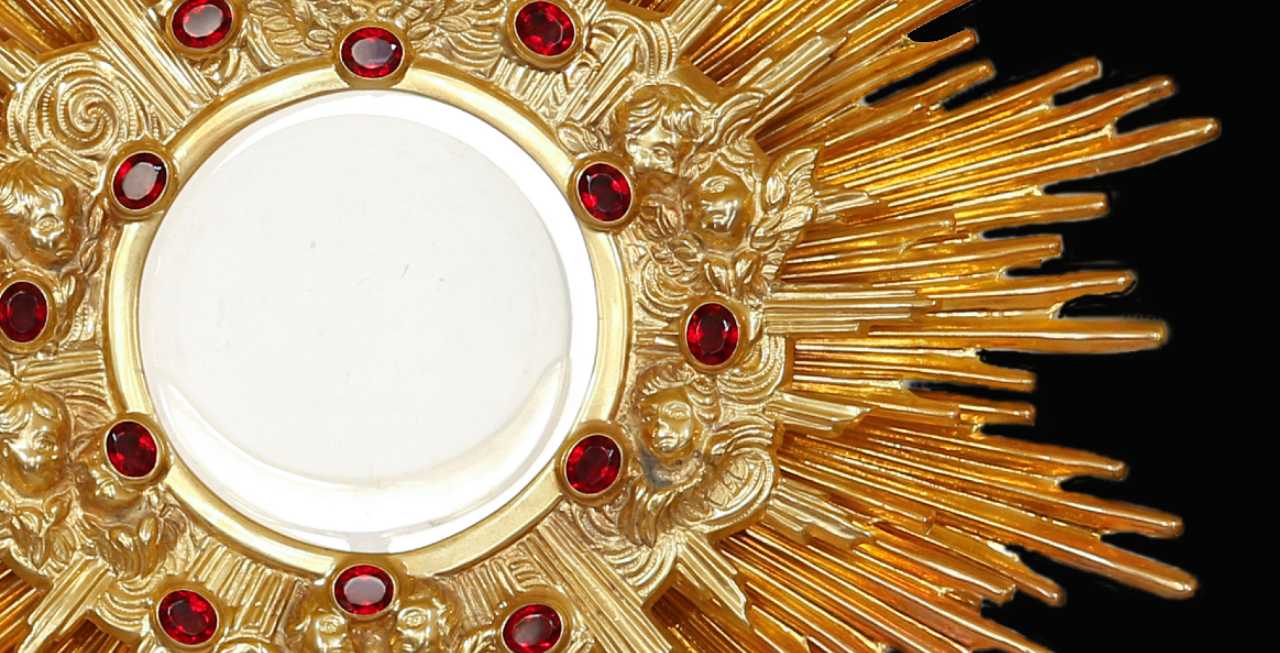
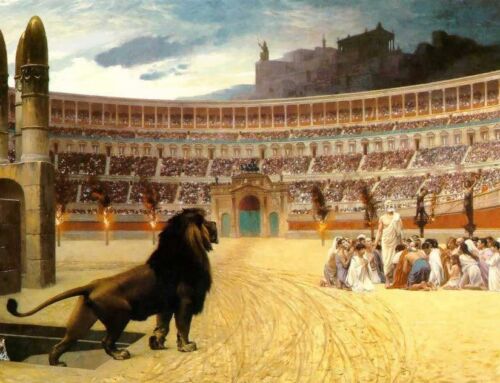
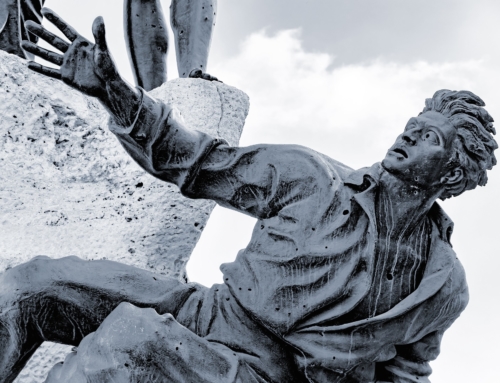
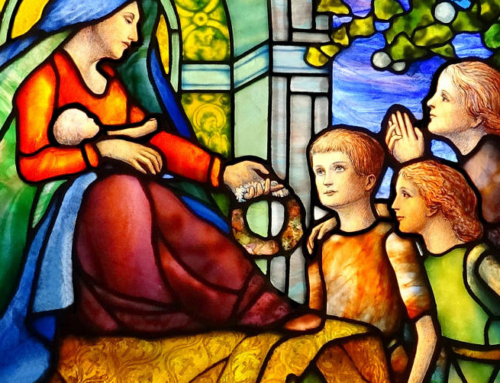
[…] Humility and Life in Aquinas’ Famous Hymn […]